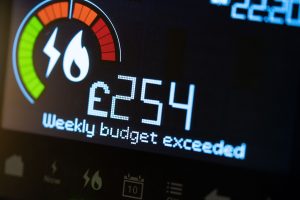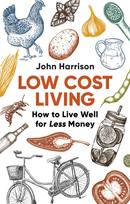Budget Wisely During the Cost of Living Crisis: Tips and Tricks to Help You Survive
The cost of living crisis is a reality for many households right now. No matter your financial situation, learning how to budget wisely can help you survive this difficult time. While it can be daunting to figure out how to stretch your money, there are a few tips and tricks you can use to make sure you’re getting the most out of what you have. From creating a budget to tracking your spending habits to finding ways to save money, there are plenty of ways to make sure your money is going where it needs to. Whether you’re living paycheque-to-paycheque or have some extra money to spare, budgeting is one of the most important steps you can take to ensure your financial security.
 What is Budgeting and Why is it Important?
What is Budgeting and Why is it Important?
Budgeting is the process of setting aside money for future expenses. It’s important because it gives you control over your money. You’re no longer at the mercy of how much your income is, or what expenses come up. With a budget, you choose how much to spend on certain items and services. It allows you to plan ahead and make better financial decisions and it can also help you save money. Most importantly, it can be helpful for anyone, no matter your income level or financial situation.
Setting a budget doesn’t mean that you can’t ever spend more than the budget amount. It just means that you have designated amounts to spend on certain things, like food, petrol, electricity, etc. Most people have a few areas that are slightly higher than others, like housing costs and transportation. These are just as important to keep in mind with your budget as other areas and should not be neglected.
Creating a Budget
There are many ways to create a budget, but the most effective way is to start small and build from there. No matter the budget you choose (short term, medium term, or long term), start by creating a simple budget. Make a list of all the money you have coming in (salary, benefits, pensions, investments, etc.), and all the money you have going out (rent, household bills, food, etc.). This will allow you to see just how much you’re actually spending and where you can find ways to save. You can get more specific with your budget by categorising your expenses. This can help you see where you can find ways to save and what areas you may be overspending on. You can also track any savings you may make by tracking your expenses and seeing where you can decrease your spending.
 Tracking Your Spending Habits
Tracking Your Spending Habits
One of the easiest ways to save money (an important before setting up your budget) is to track your spending habits, it is a good idea to do this for at least a week or ideally a month so you know just where your money is going. This can help you identify areas you’re overspending on and find ways to save. Many budgeting apps, like YNAB (You Need a Budget), provide ways to track your spending and make saving money simple. This can help you get a better sense of where your money is going. It can also help you identify areas you can decrease your spending on, so you can find ways to save money without negatively affecting your quality of life.
Last time we sat down and tracked our spending – as we kept going over our monthly budget targets – we realised just how much our “top-up shops” were costing due to poor meal planning. To help with this we carried out an inventory of our freezers, store cupboards, and fridge; then made a meal plan making sure our main weekly shop would cover all the items we needed.
Finding Ways to Save Money
There are a number of ways to try and save money, here are a few to get you started:
- Build a savings account with a sweeping function: This can help you save more money on a regular basis and make it less likely that you’ll forget about saving.
- Make a meal plan and proper grocery list: This can help you stay on track with your grocery budget and make sure you don’t spend more than you intended.
- Reduce your subscription and phone/internet bills: These bills can add up quickly, and can be difficult to track. Do you really need Amazon TV, Netflix, and Disney+ all at the same time? Perhaps rotate each month through subscription services to save some ££. With internet and phone bills make sure to shop around at the end of your contract, it can really help you save some funds.
- Find ways to save on smaller purchases: It can be easy to forget about smaller expenses as you build up a larger balance, like coffee or snacks every day. Find ways to save on these small expenses, so you can feel more comfortable saving. Take your own coffee in a flask to work for example, pack your own lunch, or car share if commuting.
See my previous blog post on Saving Money When Times are Tough.
Resources and Support for Help With Budgeting
There are a number of free budgeting tools that can help you create a budget, track your spending, and find ways to save money in the ongoing cost of living crisis. These include: YNAB (free trial), Mint, Emma, and Moneyhub in the UK.


Leave a Reply